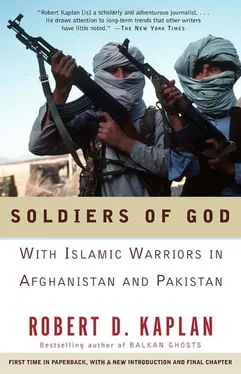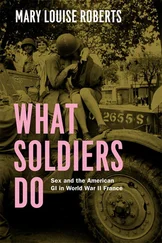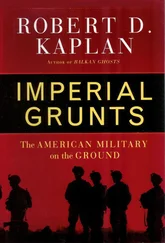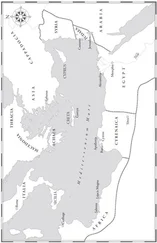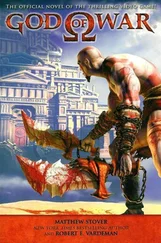Karzai, forty-two, is Afghan royalty. He is tall and olive-complexioned, with a clipped salt-and-pepper beard and a starched shalwar kameez. The slope of his bald head and nose gives him the look of an eagle. After the murder of his father Karzai inherited the tide khan (“head”) of the 500,000-strong Popolzai… the Pashtoon clan of Ahmad Shah Durrani, the Persian army commander who conquered the southern Afghan city of Kandahar and in 1747 became the first king of Afghanistan. Because tribal position is of great importance in Afghan society, the mujahidin always trusted the Westernized and moderate Karzai. The same went for the Taliban, who sought him out long before they seized power and later offered him the post of United Nations ambassador.
“The Taliban were good, honest people,” Karzai told me over green Afghan tea and almonds. “They were connected to the madrassas [Islamic academies] in Quetta and Peshawar, and were my friends from the jihad [holy war] against the Soviets. They came to me in May 1994, saying, ‘Hamed, we must do something about the situation in Kandahar. It is unbearable.’ I had no reservations about helping them. I had a lot of money and weapons left over from the jihad. I also helped them with political legitimacy. It was only in September of 1994 that others began to appear at the meetings… silent ones I did not recognize, people who took over the Taliban movement. That was the hidden hand of Pakistani intelligence.”
I heard versions of this story from several former commanders of the jihad, who told me how they had supported the Taliban only to be deceived by the Pakistani intelligence agents who were behind the movement.
These incomplete and somewhat self-serving accounts encapsulated much complicated history. By early 1994 Afghanistan was in disarray. The mujahidin who warred against the Soviets had been a motley collection of seven Pakistan-based resistance groups, divided by region, clan, politics, and religious ideology. Worse, the resistance commanders inside Afghanistan had only the loosest of links to the seven groups. For them, party affiliation was merely a matter of access to weaponry… the groups were awash in guns and money, provided by the CIA through Pakistan’s Inter-Services Intelligence. Thus when the Soviet-backed Afghan regime collapsed in Kabul, the capital, in 1992, Afghanistan became a writhing nest of petty warlords who fought and negotiated with one another for small chunks of territory. Girls and young boys were raped and traded between commanders. The situation was especially bad in Kandahar. The road leading to it from Quetta was shared by at least twenty factions, each of which put a chain across the road and demanded tolls.
But there were also honest commanders, backwoodsmen who lived by a primitive creed called Pashtoonwali… “the way of the Pashtoons,” a code more severe even than Koranic law. While emphasizing hospitality and chivalry, Pashtoonwali demands blood vengeance on fellow Muslims for killing and punishes adultery based on hearsay alone. In addition to these commanders there were hordes of young boys who had grown up in crowded refugee camps in Quetta and Peshawar, where they were educated in madrassas supported by Saudi Arabia. The schools taught a more ideological and austere brand of Islam than the ones practiced in the mountains of Afghanistan, where before the Soviet occupation religion had been a natural outgrowth of rural life. (In the mountains women need not always wear veils, for example, because in the course of a day the only males they encounter are their relatives.) In the urban anonymity of Pakistani cities and adjacent refugee camps religion was reinvented in harsher form, to preserve values suddenly under attack.
The communist ideology brought to Afghanistan by the Soviet occupation had required an equally harsh response, and throughout the 1980s and early 1990s the madrassas for Afghan refugees in Pakistan provided it. The fierce brand of Islam they taught was not just a reaction to urban conditions but also a result of evolving and intertwining Saudi and Pakistani philosophies. In the Afghan refugee academies Saudi Wahabism merged (as it did nowhere else) with the Deobandism of the Subcontinent. Wahabism arose in the Arabian peninsula in the eighteenth century with the teachings of Muhammad ibn Abdul Wahab, who led a puritanical reaction against what he considered lax observance. Deobandism takes its name from the village of Deoband, outside New Delhi, where in the nineteenth century an Islamic academy developed an orthodox pan-Islam in reaction against British rule. When the Muslim state of Pakistan was created, Deobandism was further radicalized by an Islamic theorist named Abdul A’la Maududi, who propagated a form of Islam with striking resemblances to totalitarianism. Maududi believed that the Koran had to be accepted in full and that many Muslims had corrupted Islam by letting themselves be influenced by the liberal West. Islam is perfect, Maududi asserted, and requires no judgment on the part of the believer. It should override all other laws of the state.
There is no contradiction between the radical Islamists’ hatred for the Russians in Chechnya and their hatred for the Americans everywhere else: both are reactions to a challenge from an impure West that is more proximate than ever before because of technology.
As Afghanistan fell apart in an orgy of banditry, madrassa students in Pakistan came into contact with uncorrupted backwoodsmen inside Afghanistan; together they filled the vacuum in authority. One of the backwoodsmen was Mullah Mohammed Omar, a mujahidin commander who is said to have ignited the Taliban revolt, in early 1994, by leading a small force in Kandahar that captured and hanged from the barrel of a tank a fellow commander guilty of raping two girls.
The Taliban rose and swept across late-twentieth-century Afghanistan much as Islam itself had swept across seventh-century Arabia and North Africa, filling the void left by the anarchy and decadence of waning Byzantine rule. In the process of overrunning 80 percent of the country, the Taliban captured Kabul, in 1996. There they carried out amputations and stonings and seized the Soviet puppet ruler of Afghanistan, Najibullah, from a United Nations compound, castrating and jeep-dragging him before hanging him from a traffic post.
The atrocities demonstrated the Taliban obsession with the notion that the city, with its foreign influences, is the root of all evil. In the recently published Taliban the journalist Ahmed Rashid writes that because many of the Taliban are orphans of war, who have never known the company of women, they have retreated into a male brotherhood reminiscent of the Crusaders. Indeed, the most dangerous movements are often composed of war orphans, who, being unsocialized, are exceptionally brutal (the Khmer Rouge, in Cambodia, and the Revolutionary United Front, in Sierra Leone, are two examples). Of course, the longer wars go on, the more orphans are created.
The Taliban embody a lethal combination: a primitive tribal creed, a fierce religious ideology, and the sheer incompetence, naivete, and cruelty that are begot by isolation from the outside world and growing up amid war without parents. They are also an example of globalization, influenced by imported pan-Islamic ideologies and supported economically by both Osama bin Laden’s worldwide terrorist network (for whom they provide a base) and a jnultibillion-dollar smuggling industry in which ships and trucks bring consumer goods from the wealthy Arabian Gulf emirate of Dubai (less a state than the world’s largest shopping mall) through Iran and Afghanistan and on to Quetta and Karachi.
The Taliban takeover of Afghanistan also relied on crucial help from Pakistan. By 1994 Pakistan was tiring of its Afghan mujahidin puppet, Gulbuddin Hekmatyar. Throughout the 1980s and early 1990s its Inter-Services Intelligence had channeled more arms and money from the CIA to Hekmat-yar’s radical-fundamentalist faction than to any of the more moderate mujahidin groups. Hekmatyar was young, charismatic, highly educated, and power-hungry. Yet his attraction for the ISI lay in the fact that he had little grassroots support inside Afghanistan itself and was thus beholden to the Pakistanis. The continuing anarchy in Afghanistan after the departure of the Soviets showed the fundamental flaw in the ISI’s policy. Hekmatyar could never consolidate power to the extent Pakistan required in order to safeguard its land routes to the new oil states of Central Asia… routes that would create a bulwark of Muslim states that could confront India.
Читать дальше
